Elderberry tincture is a natural immune booster that can be taken daily in small doses. It does not require refrigeration after opening and is a convenient option with a longer shelf life compared to elderberry syrup.
Elderberry tincture contains antioxidants and vitamin C, providing various health benefits such as boosting the immune system. However, it is important to follow the recommended daily dose and consult a healthcare provider if pregnant, nursing, or have a chronic medical condition.
With its easy-to-take format and potential immune-boosting properties, elderberry tincture is a popular choice for those looking to support their overall wellness.
Introduction To Elderberry Tincture
Looking for a quick and easy immune boost? Try elderberry syrup. If you prefer something with a longer shelf life or want to take small doses throughout the day, elderberry tincture is a better option.
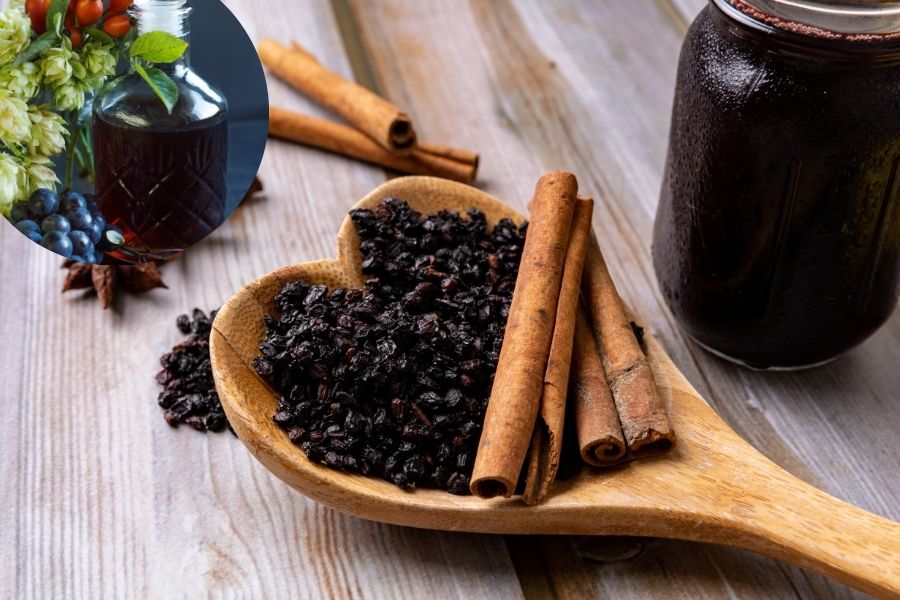
What Is Elderberry Tincture?
Elderberry tincture is a highly concentrated liquid extract made from the berries of the elderberry plant, scientifically known as Sambucus nigra. It is a popular herbal remedy known for its immune-boosting properties and has been used for centuries in traditional medicine. The tincture is made by soaking the elderberries in alcohol, which extracts the beneficial compounds and creates a potent remedy. Elderberry is gaining popularity for its numerous health benefits and convenient usage.
Benefits Of Elderberry Tincture
Elderberry tincture offers a wide range of benefits for overall health and well-being. Here are some of the key advantages:
- Immune Support: Elderberry is known for its strong immune-boosting properties. It contains powerful antioxidants that help strengthen the immune system, reducing the risk of infections and supporting overall health.
- Antiviral Activity: The active compounds in elderberry have been found to have antiviral properties, particularly against respiratory viruses. This makes it a valuable natural remedy for preventing and treating colds, flu, and other respiratory illnesses.
- Anti-Inflammatory Effects: Elderberry tincture has anti-inflammatory properties that can help reduce inflammation in the body. This can be beneficial for conditions such as arthritis, allergies, and other inflammatory diseases.
- Rich in Nutrients: Elderberry is packed with essential nutrients, including vitamins A, B, and C, as well as minerals like potassium and iron. Consuming elderberry tincture can provide a natural boost of these nutrients, supporting overall health and vitality.
- Heart Health: Research suggests that elderberry tincture may have positive effects on heart health. It may help lower cholesterol levels, reduce blood pressure, and improve overall cardiovascular function.
These are just a few of the many benefits that elderberry tincture can offer. Its natural properties make it a valuable addition to your health routine, particularly during cold and flu season or when you need an extra immune boost.
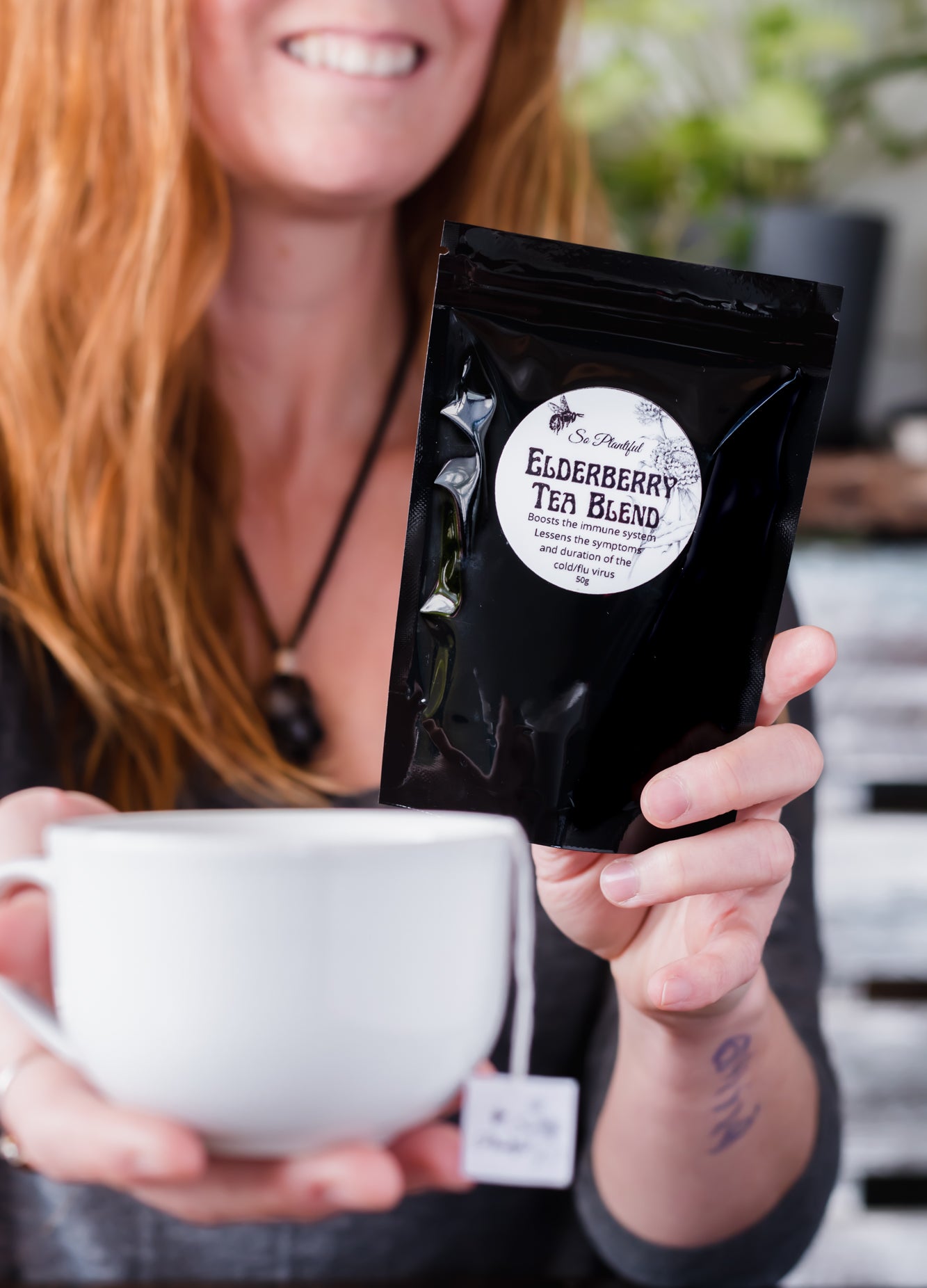
Comparison: Elderberry Tincture Vs. Syrup
If you are considering adding elderberry to your wellness routine, there are two popular options to choose from – elderberry tincture and elderberry syrup. Each has its own unique characteristics and benefits. In this comparison, we will explore the differences in usage, shelf life, and dosing, as well as determine which one is the better option for you.
Differences In Usage
- Elderberry syrup is a thick, sweet liquid that is commonly taken by the teaspoonful as a daily supplement or when feeling under the weather.
- On the other hand, is a concentrated liquid extract that is typically taken in small doses throughout the day. It is often preferred by those who prefer a more potent and fast-acting option.
Shelf Life And Dosing
When it comes to shelf life, elderberry syrup generally has a shorter lifespan as it contains more water and is prone to spoilage. The recommended shelf life for homemade elderberry syrup is around 2-3 months when stored in the refrigerator.
on the other hand, has a much longer shelf life due to its alcohol content, which acts as a natural preservative. When stored in a cool, dark place, it can last for several years.
In terms of dosing, elderberry syrup is often taken in larger amounts, typically around 1-2 teaspoons per day. This makes it perfect for those who prefer a more straightforward and convenient option.
however, is taken in smaller doses, usually around 30-60 drops per day. This allows for more flexibility and customization in terms of usage.

Which One Is Better?
Ultimately, the decision between elderberry tincture and syrup depends on your personal preferences and needs. If you are looking for something quick and easy to take, then elderberry syrup is the way to go. It provides a sweet and tasty option that is perfect for daily supplementation or when you’re feeling under the weather.
On the other hand, if you prefer a longer shelf life or the ability to take smaller doses throughout the day, elderberry tinctured is the better option. Its concentrated nature allows for a more potent and fast-acting supplement that can be easily incorporated into your daily routine.
Making And Using Elderberry Tincture
Looking to make and use Elderberry Tincture? Elderberry syrup is a quick and easy option, while tincture offers a longer shelf life and the ability to take smaller doses throughout the day. Enjoy the immune-boosting benefits of elderberries with these options.
Ingredients And Preparation
To make your own elderberry tincture, you will need a few simple ingredients:
- Elderberries (dried or fresh)
- Alcohol (such as vodka or brandy)
- Water
Start by measuring out the elderberries. For every cup of elderberries, you will need 2 cups of alcohol and 1 cup of water. Place the elderberries in a glass jar and pour the alcohol over them. Add water to the jar, ensuring that the elderberries are completely submerged.
Seal the jar tightly and give it a good shake to mix the ingredients. Store the jar in a cool, dark place for about 4-6 weeks. During this time, make sure to shake the jar every few days to help extract the beneficial compounds from the elderberries.
After the steeping period, strain the liquid through a cheesecloth or fine-mesh sieve to remove the elderberry solids. Transfer the liquid into dark glass dropper bottles for easy dosage and storage. Your elderberry is now ready to use!
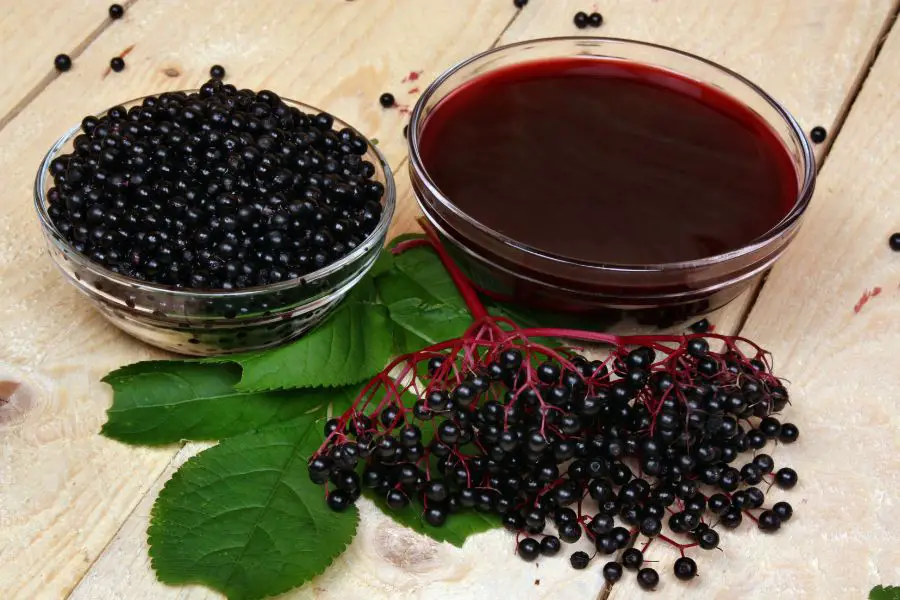
Proper Dosage And Usage
The proper dosage of elderberry tincture may vary depending on the individual and the specific brand or recipe. It’s always a good idea to consult with a healthcare professional before starting any new supplement regimen.
As a general guideline, adults can take 1-2 dropperfuls (about 30-60 drops) of elderberry tincture, up to three times a day. For children, it’s best to consult with a pediatrician for appropriate dosing.
Its can be taken directly under the tongue for faster absorption or added to a small amount of water or juice. It’s important to note that elderberry tincture is highly concentrated, so it’s important to follow the recommended dosage and not exceed it.
Storage And Shelf Life
Elderberry tincture has a long shelf life when stored properly. It should be stored in a cool, dark place away from direct sunlight and heat. A pantry or kitchen cabinet is ideal for storing elderberry tincture.
When stored correctly, elderberry tincture can last for several years. It’s important to check for any signs of spoilage, such as a change in color, odor, or taste, before using. If any of these signs are present, it’s best to discard the tincture and make a fresh batch.
To maximize the shelf life of your elderberry tincture, make sure to seal the dropper bottles tightly after each use and avoid exposing the tincture to excessive heat or light.
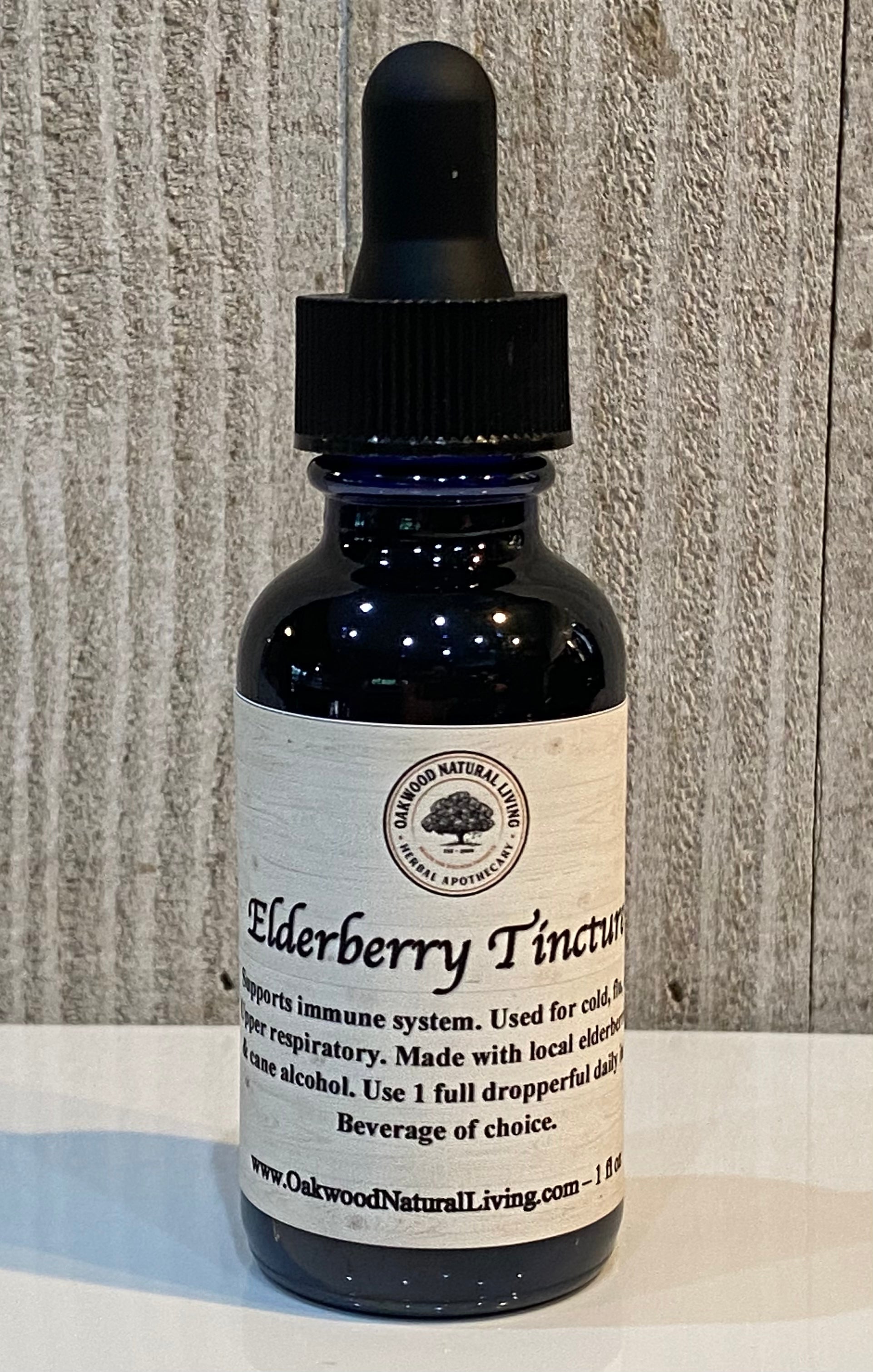
Frequently Asked Questions On Elderberry Tincture
What Is Better Elderberry Syrup Or Tincture?
Elderberry syrup is better if you want something quick and easy to take, while tincture is a better option if you prefer longer shelf life or smaller doses throughout the day. Both offer immune-boosting benefits. You can take elderberry supplements daily, but don’t exceed the recommended dose.
No refrigeration is needed for elderberry tincture.
Can You Take Elderberry Tincture Everyday?
Yes, you can take elderberry tincture everyday. It contains antioxidants and vitamin C that boost the immune system. Stick to the recommended daily dose and do not exceed it.
How Many Drops Of Elderberry Tincture Should I Take?
The recommended daily dose of elderberry tincture is not specified. However, you should not exceed the recommended dose.
Do You Need To Refrigerate Elderberry Tincture?
No, you do not need to refrigerate elderberry tincture. It is shelf-stable and can be stored away from heat and light. Just make sure not to use it if the outer seal is broken.
Conclusion
Elderberry tincture offers a convenient and long-lasting option for immune support. While elderberry syrup provides a quick and easy solution, the tincture provides a longer shelf life and the ability to take small doses throughout the day. You can even take elderberry supplements daily for maximum benefit.
Remember, it’s important to always follow the recommended daily dosage. With its numerous benefits and versatility, elderberry tincture is a valuable addition to your wellness routine.

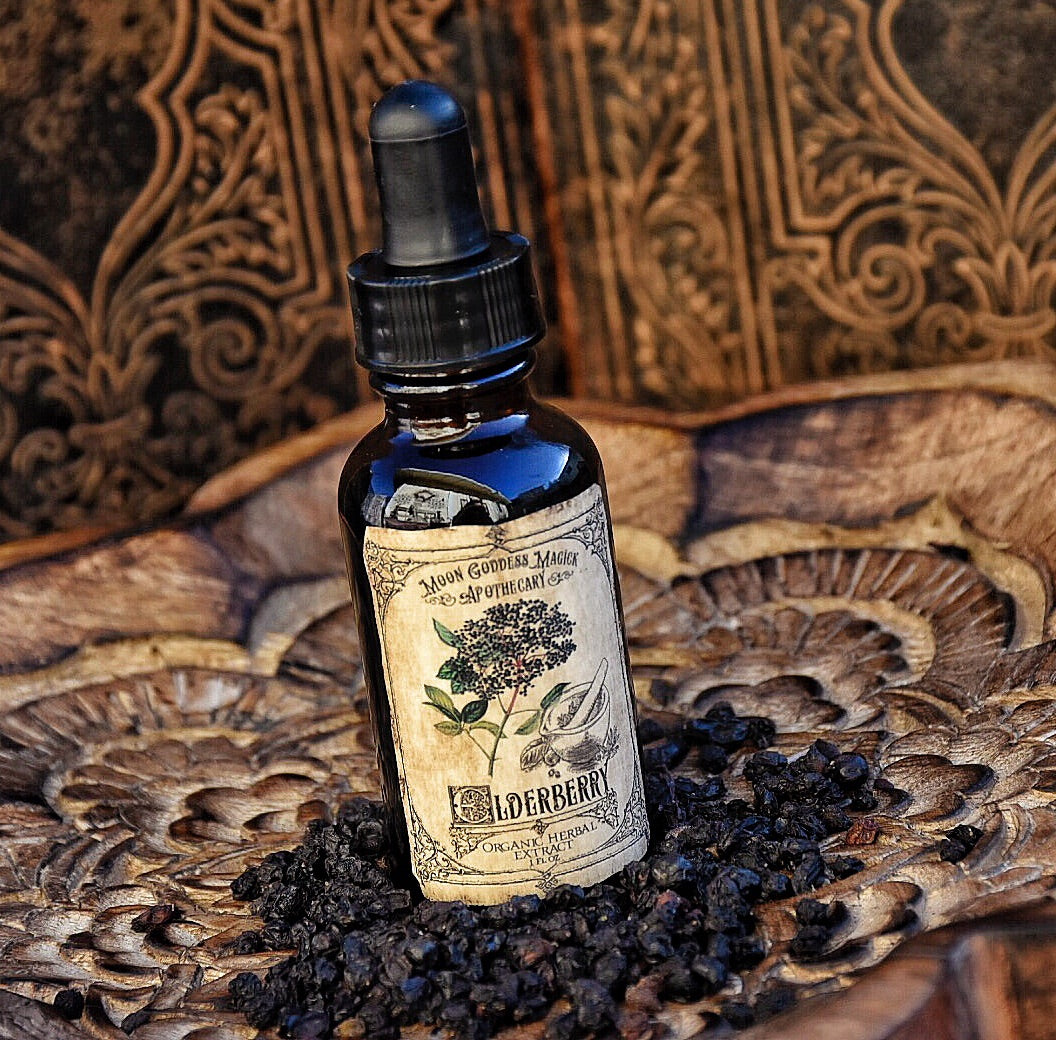
2 thoughts on “Elderberry Tincture: Boost Immunity and Fight Cold & Flu Quickly”